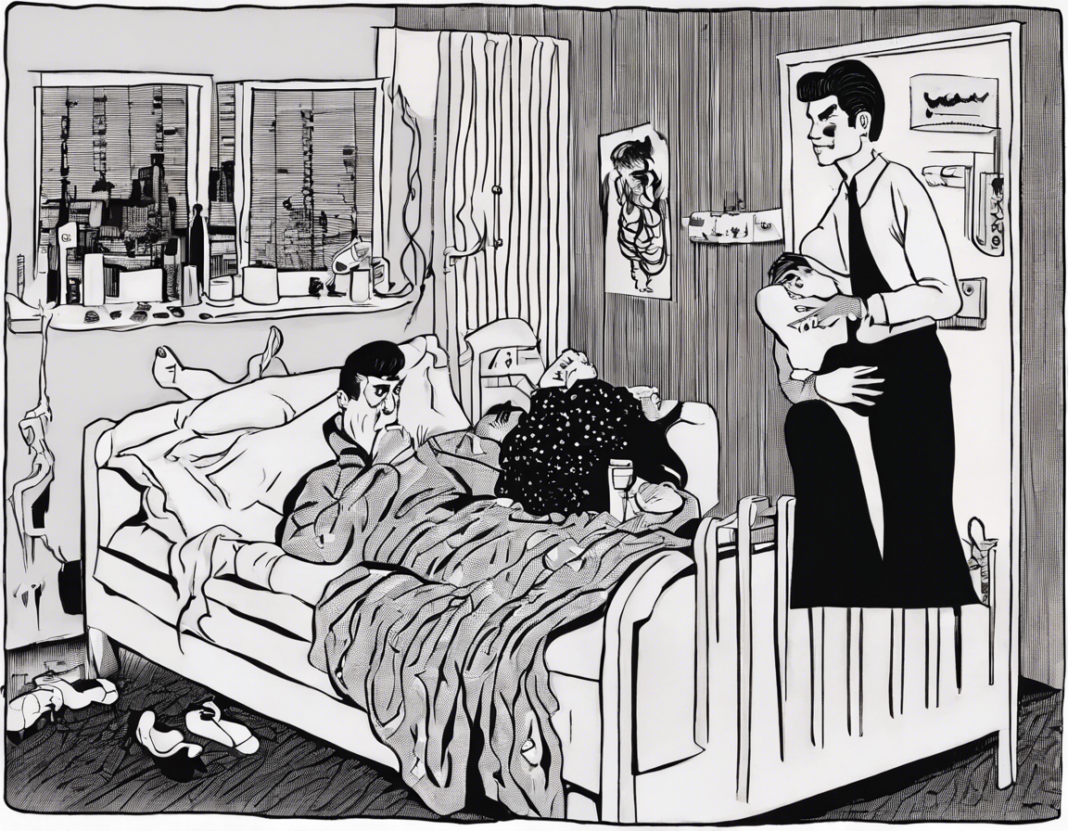Introduction
Sperm cramps, also known as testicular pain or discomfort following ejaculation, are a relatively common phenomenon that can cause anxiety and confusion for those experiencing them. Despite the prevalence of this issue, there is limited information available on the subject, leading to various myths and misconceptions. In this article, we will delve into the world of sperm cramps, debunk common myths, explore potential causes, and provide tips for managing and preventing this discomfort.
Understanding Sperm Cramps
What are Sperm Cramps?
Sperm cramps, also referred to as post-ejaculatory pain, are characterized by a dull ache or sharp pain in the testicles or pelvic region that occurs shortly after ejaculation. This discomfort can range from mild to severe and may persist for a few minutes to several hours. While sperm cramps are typically harmless and resolve on their own, persistent or severe pain should be evaluated by a healthcare provider to rule out underlying medical conditions.
Debunking Common Myths
Myth: Sperm Cramps Signify Infertility
One of the most pervasive myths surrounding sperm cramps is that they are a sign of infertility. In reality, occasional testicular pain following ejaculation is a common occurrence and is not necessarily indicative of fertility problems. However, if you experience chronic or severe testicular pain, it is advisable to consult a healthcare professional to rule out any underlying issues that may affect fertility.
Myth: Sperm Cramps Are Always a Cause for Concern
While experiencing discomfort in the testicles can be alarming, especially for those who are unfamiliar with sperm cramps, it is essential to understand that occasional post-ejaculatory pain is often benign. Factors such as fatigue, dehydration, or muscle strain can contribute to sperm cramps and are typically not a cause for concern. However, if the pain is persistent, worsening over time, or accompanied by other symptoms, seeking medical advice is recommended.
Potential Causes of Sperm Cramps
1. Muscle Fatigue
Engaging in vigorous sexual activity or prolonged masturbation can strain the pelvic muscles, leading to discomfort or cramping post-ejaculation. Ensuring adequate rest and engaging in regular physical activity can help prevent muscle fatigue and reduce the likelihood of experiencing sperm cramps.
2. Dehydration
Dehydration can exacerbate muscle cramps and discomfort, including those experienced in the pelvic region after ejaculation. Staying hydrated by drinking an adequate amount of water throughout the day can help alleviate post-ejaculatory pain and promote overall well-being.
3. Prostatitis
In some cases, sperm cramps may be associated with prostatitis, inflammation of the prostate gland. Prostatitis can cause pelvic pain, discomfort during ejaculation, and other urinary symptoms. If you suspect that prostatitis may be contributing to your symptoms, consult a healthcare provider for a proper diagnosis and treatment plan.
Tips for Managing and Preventing Sperm Cramps
1. Stay Hydrated
Ensuring proper hydration is essential for preventing muscle cramps, including those that occur post-ejaculation. Aim to drink an adequate amount of water throughout the day to support overall muscle function and reduce the likelihood of experiencing discomfort.
2. Practice Moderation
Engaging in excessive sexual activity or masturbation can strain the pelvic muscles, leading to discomfort and cramping. Practice moderation and listen to your body’s signals to avoid overexertion and reduce the risk of sperm cramps.
3. Use Proper Techniques
When engaging in sexual activity or masturbation, using proper techniques and positions can help prevent muscle strain and reduce the likelihood of experiencing post-ejaculatory pain. Communicate with your partner about what feels comfortable and avoid positions that put unnecessary strain on the pelvic muscles.
4. Seek Medical Advice When Necessary
If you experience persistent or severe testicular pain, consult a healthcare provider for a proper evaluation. While occasional sperm cramps are typically harmless, chronic or severe pain may be a sign of an underlying medical condition that requires treatment.
Frequently Asked Questions (FAQs)
1. Are sperm cramps a sign of infertility?
Occasional sperm cramps are typically not indicative of infertility. However, if you have concerns about your fertility or experience persistent testicular pain, consult a healthcare provider for an evaluation.
2. Can dehydration contribute to sperm cramps?
Yes, dehydration can exacerbate muscle cramps, including those experienced post-ejaculation. Staying hydrated by drinking an adequate amount of water can help prevent discomfort in the pelvic region.
3. How can I differentiate between normal post-ejaculatory pain and a more serious issue?
Normal post-ejaculatory pain is usually mild and temporary, resolving on its own within a short period. Persistent or severe testicular pain, accompanied by other symptoms such as fever or swelling, may indicate a more serious problem that requires medical attention.
4. Are there specific risk factors for experiencing sperm cramps?
Engaging in vigorous sexual activity, dehydration, and muscle fatigue are common risk factors for experiencing sperm cramps. Maintaining a healthy lifestyle, practicing moderation, and staying hydrated can help reduce the likelihood of discomfort in the pelvic region.
5. Can stress or anxiety contribute to sperm cramps?
Stress and anxiety can manifest physically in the form of muscle tension and discomfort, which may contribute to sperm cramps. Engaging in relaxation techniques, such as deep breathing or meditation, can help alleviate stress and reduce the likelihood of experiencing post-ejaculatory pain.
In conclusion, sperm cramps are a common phenomenon that can cause discomfort and uncertainty for those who experience them. By understanding the potential causes, debunking common myths, and implementing preventive measures, individuals can manage and reduce the likelihood of experiencing post-ejaculatory pain. Remember that while occasional sperm cramps are typically harmless, seeking medical advice for persistent or severe discomfort is always advisable to rule out any underlying issues.

